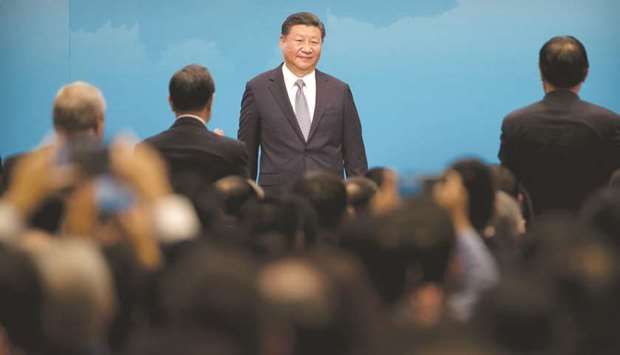The Brics group of emerging economies must promote trade liberalisation and an open world economy, Chinese President Xi Jinping said at a business meeting yesterday at the start of a three-day summit being held in southeastern China.
The heads of state from Brazil, Russia, India, China and South Africa will gather in the city of Xiamen through Tuesday, giving China as host its latest chance to position itself as a bulwark of globalisation in the face of US President Donald Trump’s “America First” agenda.
Brics leaders will be joined by observer countries Thailand, Mexico, Egypt, Guinea and Tajikistan, and officials will discuss a “Brics Plus” plan to possibly expand the bloc to new members.
Mexico’s President Enrique Pena Nieto is set to be in China to discuss trade and investment, as Trump has renewed threats to scrap the 23-year-old North American Free Trade Agreement (Nafta) that he has labelled a killer of US jobs. “We should push for an open world economy, promote trade liberalisation and facilitation, jointly create a new global value chain, and realise a global economic rebalancing,” Xi told Brics business leaders and senior officials. Xi said he still had “full confidence” in Brics countries’ development despite claims that the bloc’s relevance had faded due to slower growth.
“The development of emerging market and developing countries won’t touch anyone’s cheese, but instead will diligently grow the world economic pie,” he said. Earlier, Chinese vice trade minister, Wang Shouwen, said the Brics meeting was expected to “reach consensus for actions” to oppose trade protectionism. He added that China was interested in possibly establishing a free trade agreement with Mexico.
In July, Xi called on members of the Group of 20 (G20) nations to champion an open world economy, and at the World Economic Forum in Davos, Switzerland, in January offered a vigorous defence of globalisation.
In Xiamen, Xi closed his 45-minute speech by saying that Beijing encouraged Chinese companies to continue going abroad, and “warmly welcomed” other countries’ firms to invest in the world’s second-largest economy.
But those remarks are cold comfort to some critics of China, foreign business groups and governments alike, who say China has done little to remove its discriminatory policies and market barriers that favour Chinese companies.
Some have questioned the relevance of Brics and China’s commitment to its New Development Bank (NDB) in light of Xi’s own global Belt and Road development initiative and the China-led Asian Infrastructure Investment Bank.

Chinese President Xi Jinping leaves the stage after speaking during the opening ceremony of the Brics Business Forum at the Xiamen International Conference and Exhibition Center in Xiamen, China.
